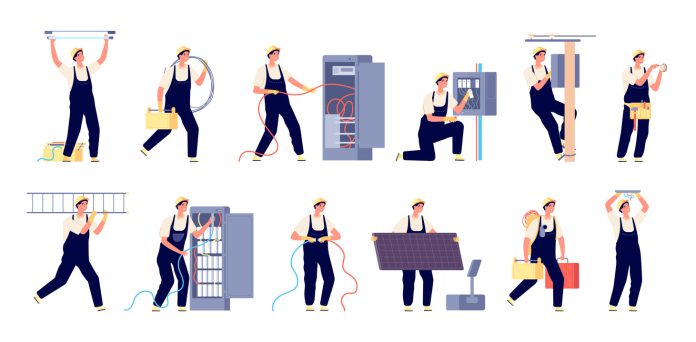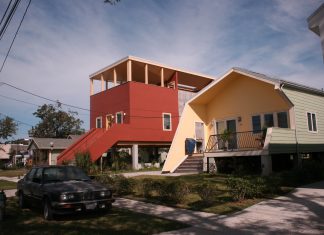
Electricians are skilled professionals trained to build and repair electrical systems in homes and businesses. Generally, we have two types of electricians; residential and commercial. Apart from their titles, what distinguishes the two? Colz Electric discusses the differences given their expertise in both!
Commercial Electricians
Commercial electricians install, maintain, repair, and upgrade electrical systems in business buildings. They install and repair transformers, lighting, receptacles, and generators. Commercial electricians install electrical systems in office parks, hotels or resorts, school buildings, industrial facilities, retail stores, and other commercial buildings.
Residential Electrician
Residential electricians install, repair, and maintain electrical systems, lighting fixtures, wiring, circuit boards, and power outlets in residential properties. They install and repair electrical components in single-family homes, apartment complexes, condos, townhomes, etc. The scope of their services is limited to homeowners.

Commercial vs. Residential Electricians: Key Differences
While residential and commercial electricians share various job responsibilities, they are distinct in several ways. The differences in electrical needs, ambient conditions, and accessibility between these two setups account for differences in wiring installation and electrical repair methods. Here are a few examples of how residential and commercial electricians differ.
Wiring
The primary distinction between residential and commercial electrical installations is the wiring used in each setup. For safety reasons, the wiring in commercial buildings is enclosed in tube-like conduits. All the wires are laid out in easily accessible locations. In contrast, plastic sheathing is wrapped tightly around small, thin wires in residential dwellings. This sheathing is crucial to avoid anyone being hurt by directly touching the wire. Wiring conduits are not common in a residential setup.
Power Phases
The power needs are also different between commercial and residential setups. Commercial buildings are supplied with three-phase power consisting of a neutral wire, a 120-volt leg, and a 208-volt leg. On the other hand, residential properties are powered by a single-phase power system consisting of a neutral line and two 120-volt lines. Commercial buildings, as expected, consume far more energy than residential buildings. To avoid overloaded power lines, utility providers divide the electrical grid into residential and commercial phases.
How they Work
There is also a significant difference between the types of electricians you will hire depending on the type of property you own. While residential electricians work primarily with homeowners and their needs, commercial electricians work with designers, contractors, and architects. Commercial electricians look at a project from a different angle and implement their expertise on a broad scale. They may also have to show very detailed blueprints and drawings before working on a project. On the other hand, residential electricians aren’t usually required to do this for their jobs or tasks.
Accessibility
Another difference is cable accessibility. In residential setups, most homeowners do not want exposed electrical wiring. Additionally, if you have children or pets in your home, you do not wish the wiring to be easily accessible. As a result, it is critical to conceal cables under drywall in residential buildings. Furthermore, a residential electrician should install all the electrical components correctly the first time because it is quite difficult to make repairs.
On the other hand, wiring in commercial setups must be conveniently accessible to perform necessary repairs or upgrades. Commercial structures also have lots of daily activities. As a result, the wiring in commercial buildings is more susceptible to wear and tear compared to residential environments. Therefore, commercial setups require the use of long-lasting materials.
Quality
The quality and grade of electrical materials vary greatly between commercial and residential applications. Materials used in commercial applications must withstand greater levels of chemical exposure, corrosion, and heat damage. They are also governed by distinct codes and standards and meet different requirements. In addition, business establishments such as hospitals require a backup power source to handle higher usage demands. This is not the case for residential setups.
When considering electrical repairs in Calgary, you will be in safe hands with a master electrician, whether you’re in a commercial or residential building. Look for those who’ve earned a solid reputation for offering high-quality electrical services to residential and commercial customers throughout Calgary. After all, electrical services, equipment, and materials are tested to guarantee that they comply with all applicable codes and laws. Whether you need routine electrical maintenance or urgent after-hours electrical assistance, you’ll need someone who can respond any time of the day or night. For that kind of service, call Colz Electric.














